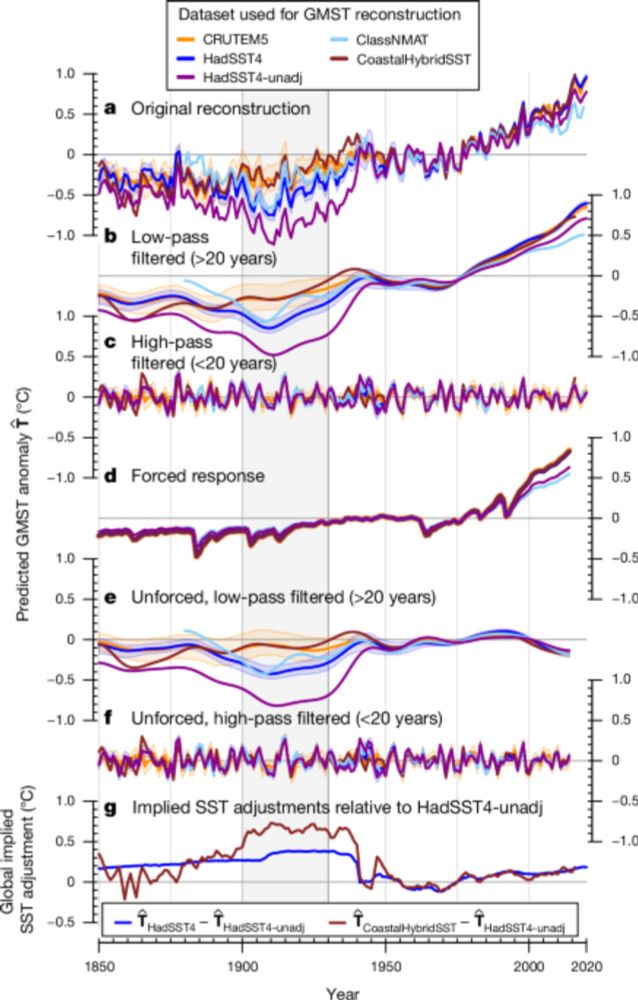Robert Rohde
@rarohde.bsky.social
7.8K followers
590 following
760 posts
Chief Scientist for @berkeleyearth.org.
Physics PhD & data nerd. Usually focused on climate change, fossil fuels, & air quality issues.
Posts
Media
Videos
Starter Packs
Pinned
Robert Rohde
@rarohde.bsky.social
· Nov 22

Early-twentieth-century cold bias in ocean surface temperature observations - Nature
Independent statistical reconstructions of the global mean surface temperature from either ocean or land data show that existing estimates of early-twentieth-century ocean surface temperatures are too...
www.nature.com
Reposted by Robert Rohde
Reposted by Robert Rohde
Reposted by Robert Rohde



